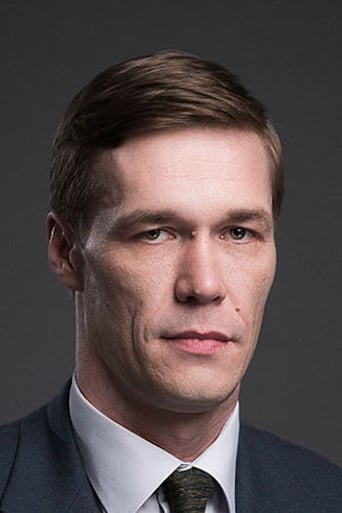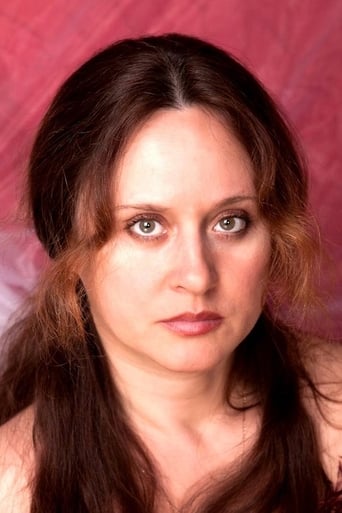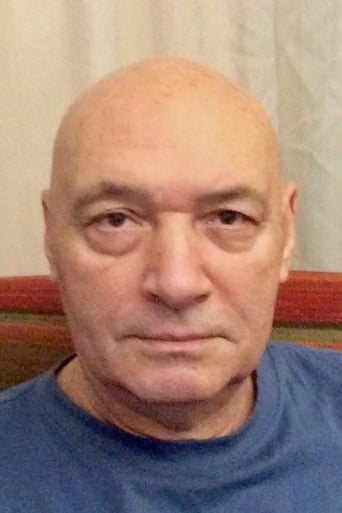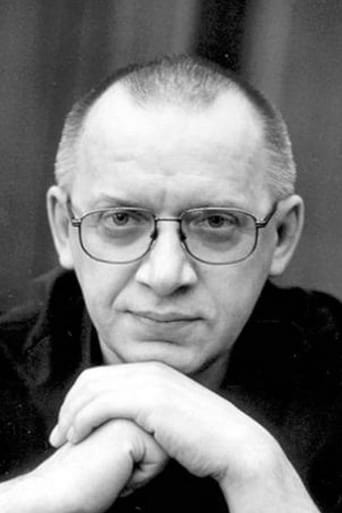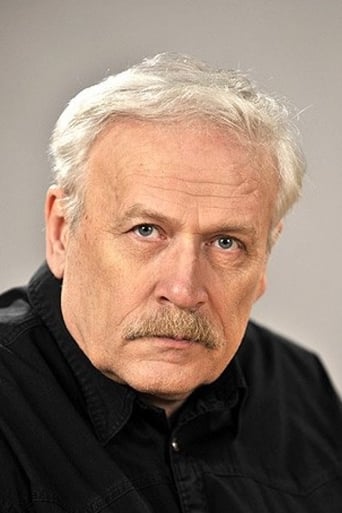overdarklord
I am surprised that this movie didn't get more attention. "The fool" is such an interesting and unique movie, set in a poor town in Russia, where corruption is a big issue. This movie focuses a lot on the characters motivations and morals, even though the topic of political corruption is so often made into a "evil big politics vs good poor people" theme, this movie tries to be more grey in its depiction.
Instead of just showing you political higher ups that are just assholes for the movies sake, it goes deeper and presents its whole system as flawed and as a result people only caring about themselves. The plot revolves a lot around the question of responsibility and sacrifices.
The characters are relatable and the movie can create so much tension, the acting is good overall and in some scenes it really shines. The atmosphere created by its music and camera shots was perfectly fitting to the scene, from long drawn out shots with jarring noises that makes you feel the cold of this Russian winter, to conversations in conference rooms which makes you feel claustrophobic.
Overall I would say that this movie is perfectly made, from its very gripping story to its interesting questions about morality.
tmdaines
The setup is fairly simple, during a violet domestic dispute about stolen money that serves as the film's prologue, a water pipe bursts. The whole scene underscores what is to come: a tale of a corrupt society teetering on the brink of disaster socially, economically and politically.The hero of the film, Dima, the "durak" (fool) of the title of the film, is a bright young plumber on the way up in the world. After inspecting the damage, he soon realises that the burst pipe is merely evidence of a much larger issue: the entire block of flats is falling apart and will do so in 24 hours. While this should have been rectified during regular renovations of the building, the funds to do so were skimmed off the top by the local head of the housing organisation.In response, Dima goes right to the very top of the provincial town in an attempt to save the lives of the occupants. Is anyone going to be motivated to act, however, if they have already been bleeding the system dry until now? Perhaps covering their own backs will prove the only motivation.A brilliant film: one where you truly don't know whether to laugh or cry. From my time in Ukraine though, I dread just how accurate this slice of modern small town Russian life is.
JvH48
Newspaper articles in March of 2015 about an alleged political murder let us recall what we learned in school about cleptocracy, or government corruption in plain English. In hindsight, not a new phenomenon in contemporary Russia, existing for many years already, but it stayed for me under the radar until lately. The first time it drew my attention was in the form of a movie, Twilight Portrait (Nikonova 2011), albeit that it could be downplayed as the proverbial rotten apples spoiling it for the whole police force. Later on I saw two others extending the theme, namely A Long And Happy Life (Khlebnikov 2013) and Leviathan (Zvyagintsev 2014), both showing corruption as deep-rooted in the bureaucracy. Especially politicians seem more involved with their own career and wealth than in their care for the average citizen. It still can be much worse, however, as demonstrated in Durak (The Fool), written and directed by Yuriy Bykov. This time it seems that all of Russian society is infected with the same disease, not only politicians and related bureaucrats. His previous film The Major (2013) was more modest in scope, and confined to a well meant cover-up to protect the career of a fellow policeman.Nevertheless, all these movies portray the same corruption in Russian society, only varying in scope and depth. Corruption seems extinguished in our Western society, and something that only still persists in third-world countries far away. Despite being no third world country, all aforementioned movies suggest that Russia is deeply soaked with corruption. It is something that Durak (The Fool) demonstrates in several scenes, showing that going along with the crowd in taking what you can get "everyone does it", is the only way to survive, even necessary to obtain at least a minimal level of comfort in your lives. It is precisely in these fine details that this movie excels. Apart from corruption, alcohol is shown to be a main source for comfort and relief of the daily boredom and poor circumstances. Another way to pass the time is fighting, mostly about lack of money or living space, usually both. It applies especially to the apartment building in question, showcasing how the lowest of the lower class live and how they interact with each other.Durak's total running time of 116 minutes may seem long for modern viewers. Admittedly, it takes its time to outline many facts of contemporary life in Russia. We are lucky to be able to see that, and as such our time is far from wasted. I could only think of one single scene that took too long for my taste, while our main character Dima walks to the restaurant where the city council has a party to celebrate the mayor's 20-years anniversary. It is shown in the form of very long uninterrupted take while following Dima along empty streets and dark houses, apparently to show the absence of a lively city center. It succeeds in leaving the impression that everyone is at home, probably drinking or fighting as seems the common way to pass the time in the various apartments visited throughout the story.All other scenes serve their purpose very well in zooming in on the people and their motives. Take for instance the meeting with department heads convened by the mayor, where Dima has the opportunity to explain the problem and its urgency. The next scene shows Dima, accompanied by two of the department heads, how he convincingly demonstrates the sorry state of the building. Upon their return to the meeting and the seriousness is sinking in, everyone is very busy with establishing the impact on their own position, anticipating the findings of an afterward investigation when the apartment building really would collapse. It makes clear to us that the corruption is not limited to this city council alone, but extends to the levels above them. In other words, there is no simple way to get loose from this tangled web. The mayor and the department heads play their roles very well, and we have ample chance to observe their dilemma's and their reasoning which actions to take (or not).Dima's family life is also portrayed very well in several parts of the story. The opening scene shows him studying for an exam to get a civil engineering degree, while his mother says it is a waste of time. Instead, he should rather "give" the examiners something to assure good marks. A similar discussion is about Dima's refusal to steal pipes from the factory where he works, in spite of "everyone else does it".The central theme of the story is whether the city council will act responsibly and evacuate the apartment building, not an easy task while other premises to accommodate 820 people has to be found. I do not want to reveal further developments for spoilers sake. It can scatter in all directions until the very end, and indeed some unexpected turns of events are part of the deal here. Ultimately, there are no winners, only losers. It is very depressing all over, but I don't think a positive ending is reasonably possible in these circumstances.All in all, acted and shot very well. Actors perform believably, even the "bad" ones. We get a good feeling why they do what they do. Actually they seem to have little alternative. That also is sadly the case for the inhabitants of the apartment building, who we observe in miserable circumstances, riddled with alcohol, noise and violence. The only problem I have with Durak (the Fool) is, that it is indeed depressingly black all over. Apart from Dami, it was totally devoid of gray and white, while aforementioned other movies with the same theme showed at least a few decent and honest people, leaving room for the conclusion that the average citizen lives a normal life, neither through-and-through corrupt (bureaucrats) nor without hope (lower classes).

